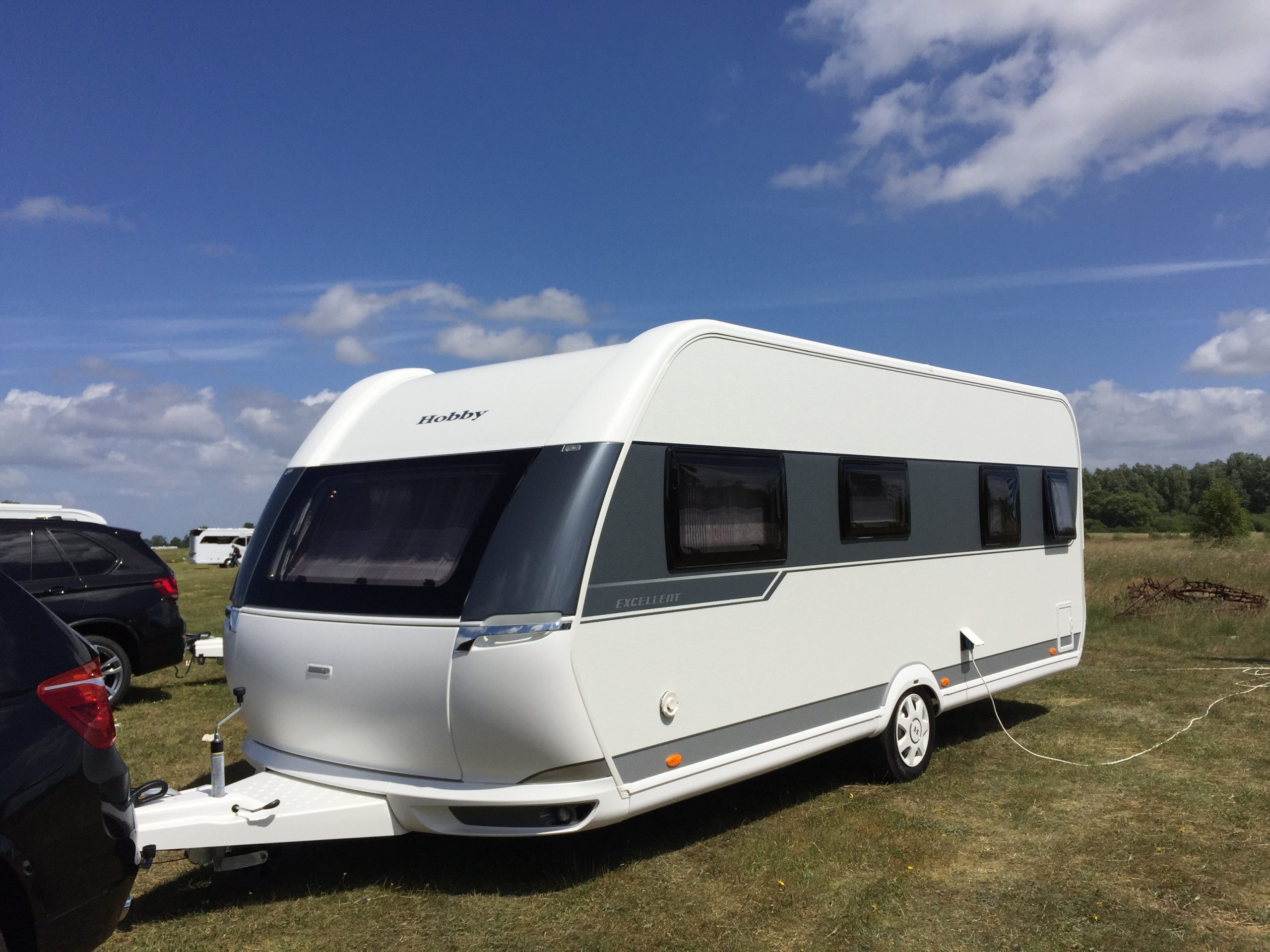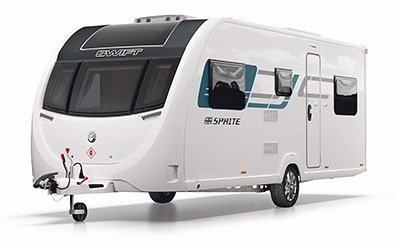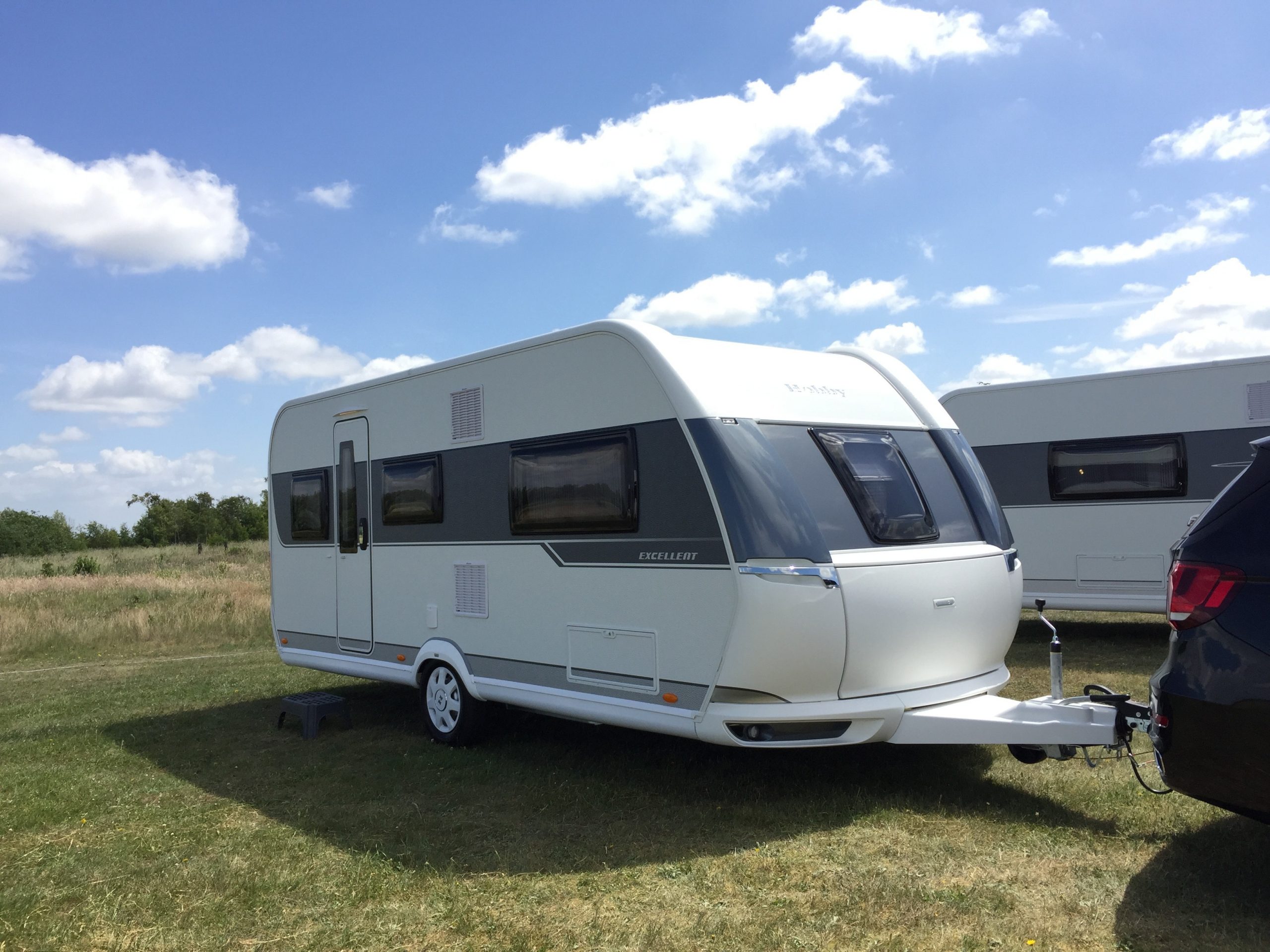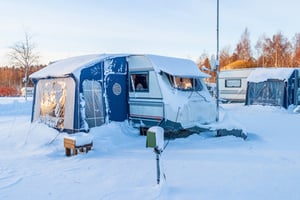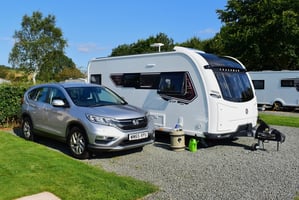Winter comfort on wheels: How to stay cosy in your caravan
Have you got a Hobby caravan? If you have, no doubt you are pleased with it, as they are a solid caravan to own. Hobby offer a wide range of caravans to suit many budgets, from entry-level up to the more luxurious caravans. Manufactured at the company’s site in Fockbek, Germany, Hobbys have a Europe-wide market share of over 25 percent of new caravan sales, so it stands that they are a popular brand. There are three current main ranges (the Excellent Edition, the Prestige and the Maxia) plus the ever popular Beachy model with its minimalist, ‘beach-house’ vibe. Definitely one for Instagram!
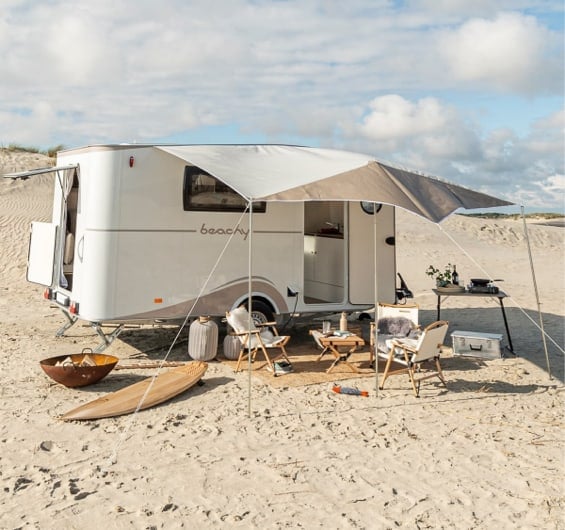
As with all makes of caravan, however, Hobbys do come with both their pros and their cons, which are useful to know about in advance. Here we discuss our thoughts on Hobbys, which we hope you will find both interesting and also give you some food for thought in the future, so that you can be up to speed if you find yourself in the market for a new or used caravan and are considering getting a Hobby.
So what are the pros?
1. They are well made
To start with, there is the very important factor that they are very well built, and therefore if looked after they can last you a long time. This is very much a positive, therefore, when it comes to parting with your hard-earned cash.
2. They are spacious
The layout of each model of Hobby is obviously different, but they are known for being quite spacious. Indeed, at least one of the current models on the market is a 7 berth, with many sleeping 5 or 6. Some of the modern versions even have a separate children’s room with its own kids’ seating area, so everyone isn’t on top of each other all the time. The Hobby website shows you the layouts for each of their caravans, so it’s easy for you to see which one would work best for you.
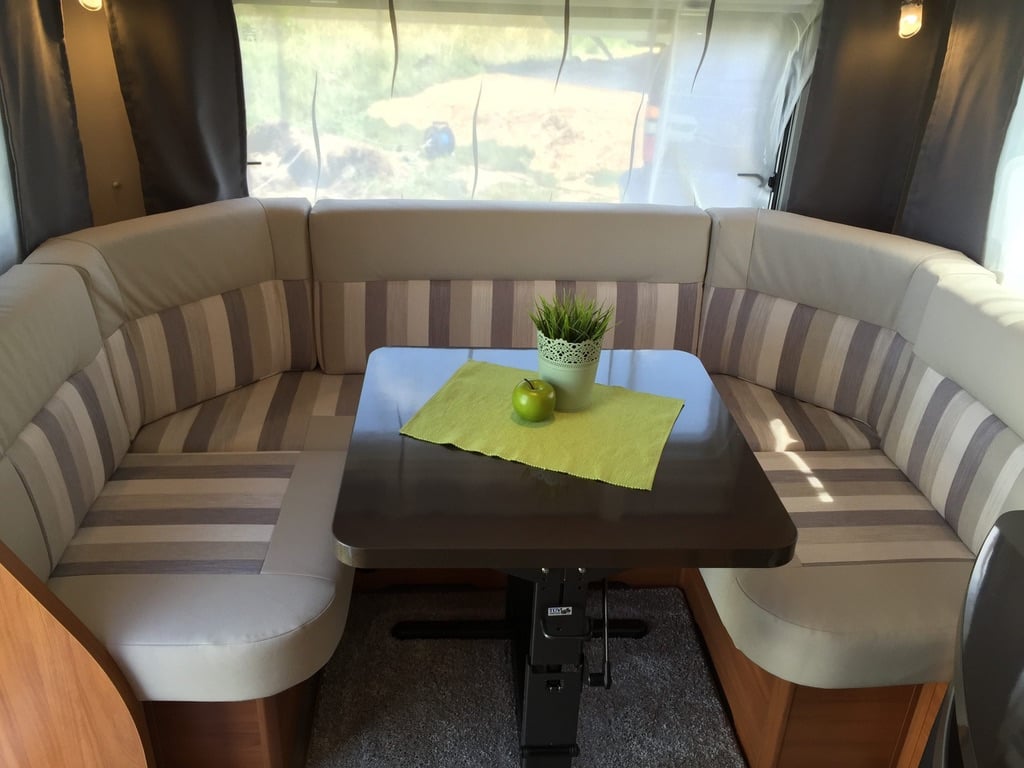
3. They hold their value
We have seen Hobbys hold good value over the years, so again, if well-looked after, there is a good chance that yours will give you a good return if you do come to sell it in the future - whether you were the first owner or even if you bought it secondhand.
4. They are ideal for long-term use
This comes down to the first two points, really, and the fact that they are reliable in many ways. Many people leave their Hobbys on permanent sites, as they are well insulated and do seem to be watertight.
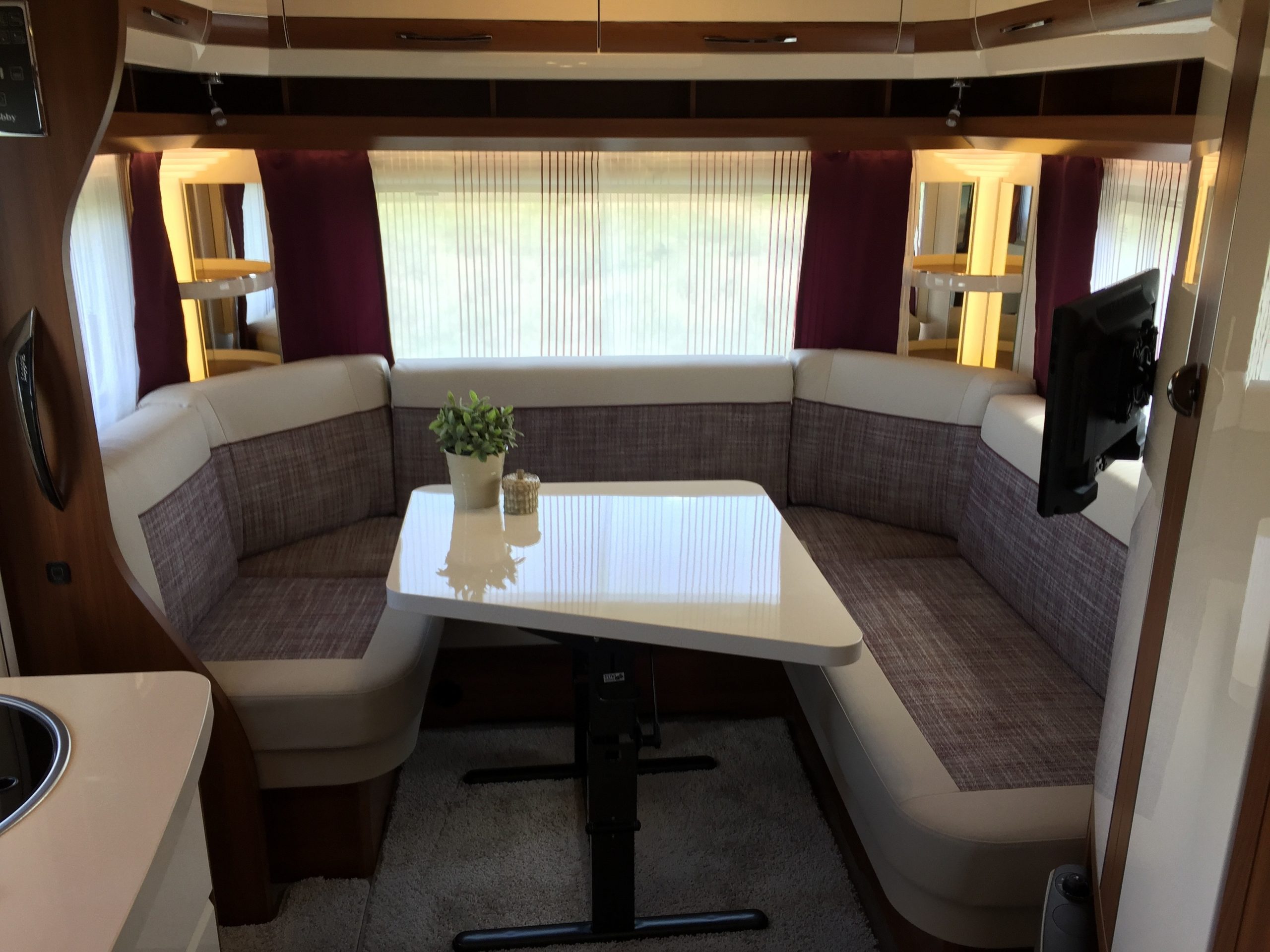
And what might the potential cons be?
1. They are big
Sometimes bigger isn’t necessarily better… Many Hobbys are on the large side - often eight feet wide - and owners do come across issues in terms of parking them, towing and pitching up. They are also heavy - a twin axle can weigh in the region of 1.9 tonnes, so you need to really get to know how to manoeuvre it well! Towing a large Hobby can be an issue in terms of the tow car you are using, in that you will need a very large tow vehicle to use with it. Due to the size of your Hobby, you might find that not all pitches are big enough, so be sure to check both your caravan’s measurements and that of your intended pitch.
2. There is a certain perception associated with them
Whether rightly or wrongly, some people have said that they have had some trouble booking campsites as a Hobby caravan owner, citing that campsite owners have been wary (whether justified or not) in thinking that the booking is being made by individuals from the travelling community. We do know that people from all communities buy them, so this perception may be a bit outdated, but it is something to bear in mind. Some campsites are also not keen on the commercial vehicles that are often used to tow these caravans.
Also, the theft rate of the larger Hobbys is higher than average, which may be why several insurers will not cover them, so it’s best to look at insurance costs and availability for cover before you do purchase one.
3. Be aware of the door openings!
This catches people out sometimes - the door opens on the opposite side to many other caravan makes. This might not seem to be a problem until you park up on your pitch, and suddenly realise your door opens out onto another person’s awning or living space! If you don’t want this to happen, you may not be able to back it in and will instead need to manually move it into position.
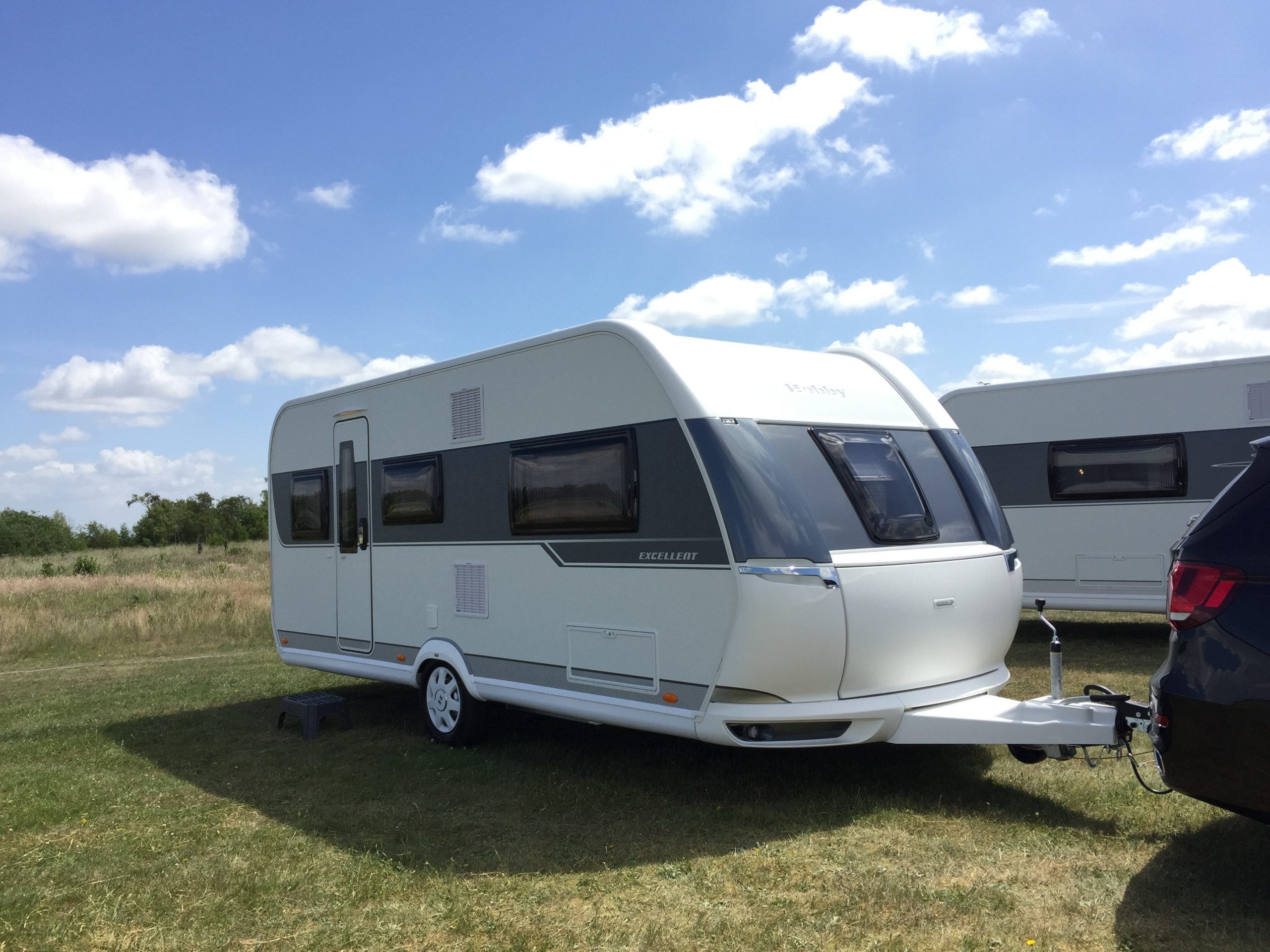
4. The older versions might be less well-equipped
Some of the older Hobbys around are known as ‘dry vans’, which have no water facilities on board, so do be mindful of this when looking at secondhand caravans. There’s no reason why they can’t be adapted these days, however, but obviously there may be a cost implication there.
Some older Hobbys are not CRiS registered, as is the case with some European makes of caravan.
5. Keep an eye on the windows
The windows do seem to be prone to suffer from cracks, which can then be a pain to fix as it can be difficult to source new ones as a replacement.
So there we have it - our guide to some of the main pros and cons associated with Hobbys. Hopefully this was helpful to you and you’ve enjoyed finding out about both the positives and the potential negatives of owning a Hobby caravan. We love them, and we think you will too… Happy Hobby travels!
